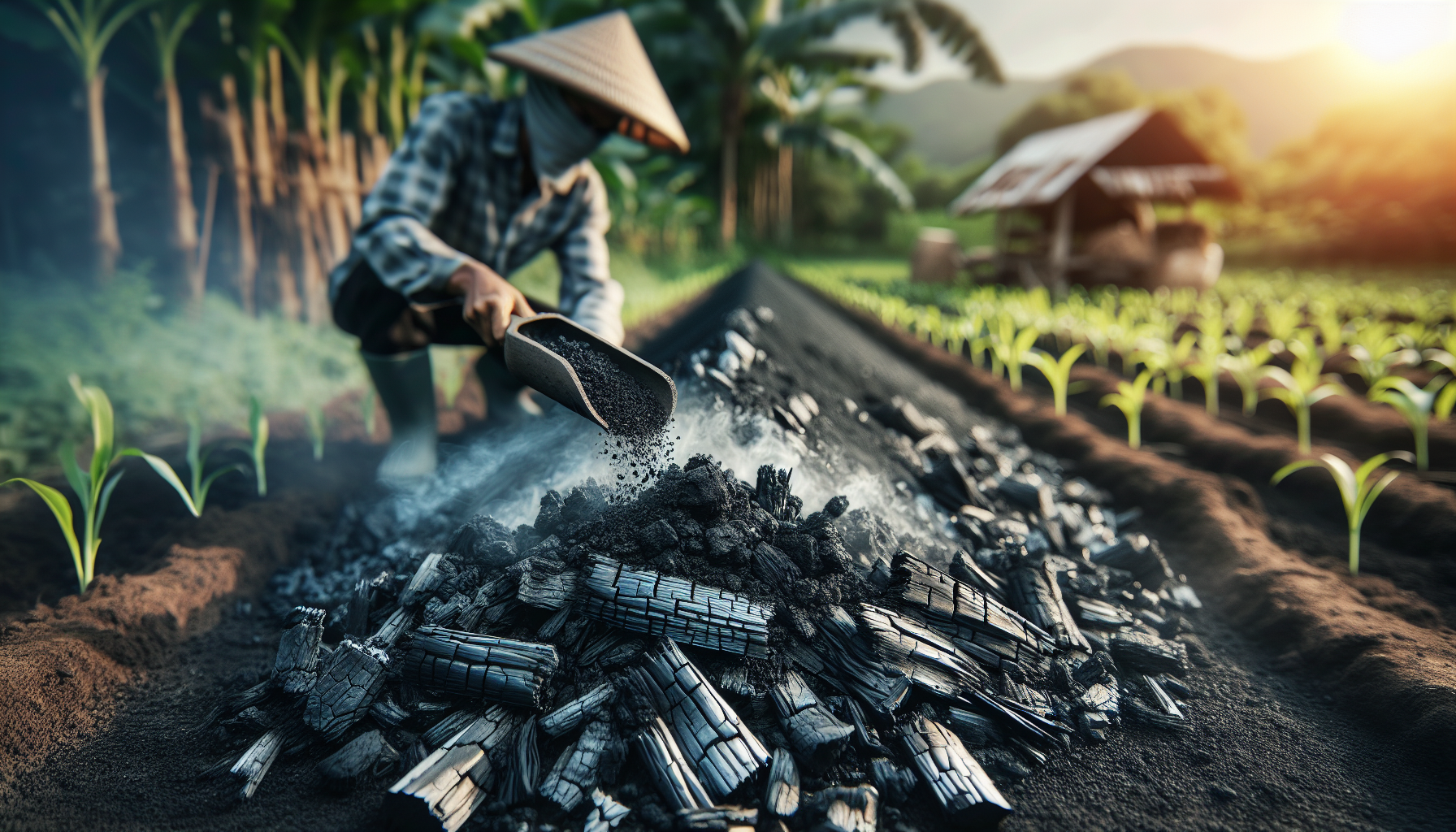Exploring Biochar Applications in Organic Soil Health
Imagine transforming the charred remains of organic materials into a powerhouse for soil health. This isn’t just a dream but a reality with biochar, a fascinating substance that’s gaining traction in the realm of organic farming. Biochar, essentially a stable form of charcoal, has been used for centuries, but its modern applications in organic soil health are both innovative and promising. Let’s dive into how biochar is revolutionizing organic soil management and what it means for sustainable agriculture.
What is Biochar and How is it Made?
Biochar is produced through the pyrolysis of biomass, which is the thermal decomposition of organic material in the absence of oxygen. This process not only creates a highly porous structure but also locks in carbon, making biochar a potent tool for carbon sequestration. Materials like wood chips, agricultural waste, and even manure can be transformed into biochar, offering a sustainable way to repurpose waste.
The beauty of biochar lies in its ability to improve soil health over long periods. Unlike other organic amendments that break down quickly, biochar can remain in the soil for hundreds to thousands of years, continually benefiting soil structure and fertility.
Biochar’s Role in Enhancing Soil Health
One of the most exciting aspects of biochar is its impact on soil health. When added to soil, biochar can enhance soil structure, increase water retention, and improve nutrient availability. This is particularly beneficial in organic farming, where synthetic fertilizers are off-limits.
For instance, biochar can act like a sponge, holding onto water and nutrients that might otherwise be lost through leaching. This means that plants can access these resources more efficiently, leading to healthier growth and higher yields. Additionally, the porous nature of biochar provides a habitat for beneficial soil microbes, which play a crucial role in nutrient cycling and soil health.
Case Studies: Biochar in Action
Let’s look at some real-world applications of biochar. In a study conducted in Brazil, researchers found that applying biochar to degraded soils not only improved soil fertility but also increased crop yields by up to 30% Study on Biochar Applications in Organic Soil Health. This is a testament to biochar’s potential in revitalizing poor soils and supporting sustainable agriculture.
Another compelling case comes from Australia, where farmers have successfully used biochar to improve soil health in vineyards. The addition of biochar led to better water retention and nutrient availability, resulting in healthier vines and improved wine quality Biochar Applications in Vineyards. These examples highlight how biochar can be tailored to specific agricultural needs, offering versatile solutions for organic farmers.
Integrating Biochar into Organic Farming Practices
So, how can organic farmers integrate biochar into their practices? The key is to understand that biochar isn’t a one-size-fits-all solution but rather a tool that can be customized to meet specific soil needs. Here’s a simple guide to get started:
| Step | Action |
| 1 | Assess your soil’s needs. Conduct a soil test to determine nutrient levels and pH. |
| 2 | Choose the right biochar. Different types of biochar can have varying effects on soil health, so select one that aligns with your soil’s requirements. |
| 3 | Apply biochar. Mix biochar into the topsoil or incorporate it into compost before application. A common rate is 1-5% of the soil volume. |
| 4 | Monitor and adjust. Keep an eye on soil health and plant growth, adjusting biochar applications as needed. |
By following these steps, organic farmers can harness the power of biochar to improve soil health and sustainability. It’s important to remember that biochar’s benefits are most pronounced when combined with other organic practices, such as composting and cover cropping.
Challenges and Future Directions
While biochar offers numerous benefits, it’s not without its challenges. One of the main hurdles is the cost and availability of biochar. Producing high-quality biochar can be expensive, and not all farmers have access to it. However, as awareness and demand grow, more cost-effective solutions are likely to emerge.
Another challenge is understanding the long-term effects of biochar on soil health. While short-term benefits are well-documented, more research is needed to fully understand how biochar interacts with different soil types and climates over extended periods. This is an area ripe for future research and innovation.
Looking ahead, the future of biochar in organic farming looks bright. As more farmers adopt this practice and share their experiences, we can expect to see even more innovative applications and techniques. The potential for biochar to contribute to sustainable agriculture and combat climate change is enormous, making it a key player in the future of organic soil health.
In conclusion, biochar represents a promising frontier in organic soil management. Its ability to improve soil structure, enhance nutrient retention, and support beneficial microbes makes it an invaluable tool for organic farmers. As we continue to explore and refine biochar applications, we move closer to a more sustainable and resilient agricultural future Future of Biochar in Sustainable Agriculture.

